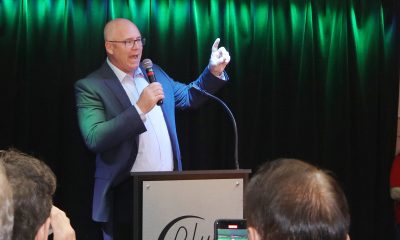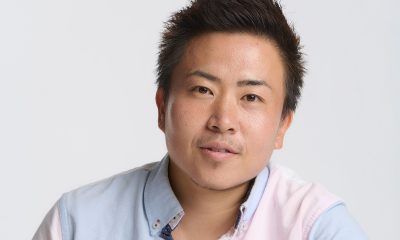World
Out in the World: LGBTQ news from Asia, Europe, and the Middle East
Spanish government wants constitution to protect marriage equality, abortion rights

JAPAN
A coalition of 19 prefectures and more than 150 municipalities has created a Partnership System Municipal Cooperation Network, in which all member governments agree to recognize each other’s same-sex partnership registries. The new system should help same-sex couples ensure their partnerships remain valid if they move or maintain multiple residences.
Because same-sex marriage is not currently legal in Japan, 30 of Japan’s 47 prefectures and more than 400 municipalities have established “partnership oath systems,” in which same-sex couple can register their relationships to help them access local services that are restricted to couples, such as housing, insurance, and medical decision-making. However, these registries are not legally binding and confer no direct rights on the couples.
Prior to the establishment of the PSMCN, couples who had registered in one municipality or prefecture could face difficulty having their relationship recognized in a different location. About one quarter of Japan lives in a place that does not recognize same-sex couples of any kind.
Meanwhile, several cases seeking to establish a right to same-sex marriage continue to wind their way through the courts.
Five out of six lower courts that heard equal marriage cases have issued rulings that the ban on same-sex marriage is unconstitutional, as have both upper courts that have heard cases. This week, the Osaka High Court is set to hear an appeal of the lower court’s decision that the ban is constitutional. The Fukuoka High Court will hear an equal marriage case in December. All of these cases will likely eventually be heard by the Supreme Court.
Most of the leading figures in Japan’s long-ruling Liberal Democratic Party have been deeply conservative on sexuality issues, which has stalled hope for progress on same-sex marriage at the legislative level. But last month’s snap elections returned a minority parliament in which a bare majority of legislatures have expressed support for same-sex marriage.
SPAIN
The governing Socialist Party announced it wants to amend the constitution to protect same-sex marriage and abortion rights, amid the rise of far right parties that have stated their goal of rolling back LGBTQ rights in Spain and across Europe.
The proposal is laid out in the party’s plan for the current national congress which was distributed to its provincial counterparts for debate this month. The document aims to include “the social achievements of the last decade” into the constitution, an effort which the document itself acknowledges may be “impossible,” but which the party wants to achieve.
Among other proposals are protections for social housing and setting a floor for the minimum wage at 60 percent of the average wage.
Spain has seen its far-right Vox Party grow rapidly over the last decade winning seats in parliament and local and regional councils. In regional governments where Vox has formed coalition governments with the more mainstream conservative People’s Party, it has already rolled back LGBTQ rights progress.
In the Madrid region, where PP and Vox govern together, they rolled back laws banning anti-LGBTQ discrimination and so-called conversion therapy, and ending recognition of transgender people, though the law was later stopped by the Constitutional Court.
It’s unlikely that the PSOE will be able to amend the constitution as that would require a three-fifths majority of both houses of parliament to pass, and PSOE only holds a minority of seats in both houses.
UNITED KINGDOM
The Conservative Party has elected as its new leader Kemi Badenoch, a legislator with a long history of espousing anti-trans and anti-LGBTQ viewpoints. Badenoch also makes history as the first Black woman to lead a major political party in the UK.
Badenoch was first elected to parliament in 2017 and previously served as the Minister for Women and Equalities in the Rishi Sunak government. She was confirmed as Conservative Party leader on Nov. 2, following an election among party members in which she won 56.5 percent of the vote.
In office, she frequently railed against trans rights and met with the anti-trans group LGB Alliance. She called for the abolition of gender-neutral toilets and was caught on a leaked recording referring to trans women as “men.”
This year, she supported her party’s platform of amending the Equalities Act to ensure that the ban on “sex” discrimination only applied to biological sex, thus allowing discrimination against trans people.
She successfully killed a planned ban on conversion therapy by pushing the government to study it further and consider not banning conversion therapy aimed at trans people.
She also used her office to push the Financial Conduct Authority to remove trans-inclusive workplace policies, and railed against “diversity, equity and inclusion” initiatives that she claimed “divide, rather than unify.”
In 2019, she abstained on the bill that extended same-sex marriage rights to Northern Ireland — then the only part of the UK where it wasn’t yet legal.
UNITED ARAB EMIRATES
The World Surf League has named Abu Dhabi, the capital of the United Arab Emirates as a stop of its 2025 Championship Tour and Longboard Tour, drawing protests from surfers and surf organizations over the potential for harm to LGBTQ athletes who attend a competition in a country where homosexuality is illegal.
The World Surf League is the governing body for professional surfers, and it sanctions competitions and events around the world. The 2025 Tour features 12 stops, including events in Brazil, Fiji, Tahiti, South Africa, El Salvador, Australia, and the U.S.
It’s the second stop, at Surf Abu Dhabi, UAE from Feb. 14-16 that’s raised eyebrows among surf athletes and fans.
Homosexuality and cross-dressing are illegal under both the Federal Crime and Punishment Law of UAE and the Abu Dhabi Penal Code, with a minimum sentence of six months and up to 14 years in prison.
Yvette Curtis, who runs the UK-based inclusive surf club Wave Wahines, has started a petition on Change.org calling on the World Surf League to drop the Abu Dhabi dates from the tour.
“The WSL have chosen to support a government that criminalizes LGBTQIA+ people and discriminates against women, and in doing so are choosing to place their athletes, support teams, and spectators at risk,” the petition states.
“By removing Abu Dhabi from its event calendar, the World Surf League would make a powerful statement: Human rights and the safety of its athletes and employees are paramount. Ignoring this issue would tacitly endorse discriminatory practices and betray the inclusive values at the heart of Olympic sports. Only through decisive action can we ensure that everyone, regardless of sexual orientation or gender identity, has an equal opportunity to compete in professional surfing.”
Curtis says the issue is personal to her, as the mother of a trans surfer.
“As a mother of three, the safety of my children is my utmost priority. My eldest child, who has bravely embraced their true self, is transgender. They also have a passion for surfing, but existing regulations in certain regions rob them of this joy and access to the waves. Abu Dhabi, named as a stop in World Surf League’s event calendar, presents a stark reality. My child, due to their identity, would be breaking laws by merely existing in such an environment,” she says.
The petition, which has already drawn more than 1,600 signatures, has been endorsed by surf clubs all over the world,
The controversy around the Abu Dhabi tour stop mirrors similar controversy over hosting the 2022 World Cup in Doha, Qatar, and the 2014 Winter Olympics in Sochi, Russia, both countries with dismal records on LGBTQ rights.
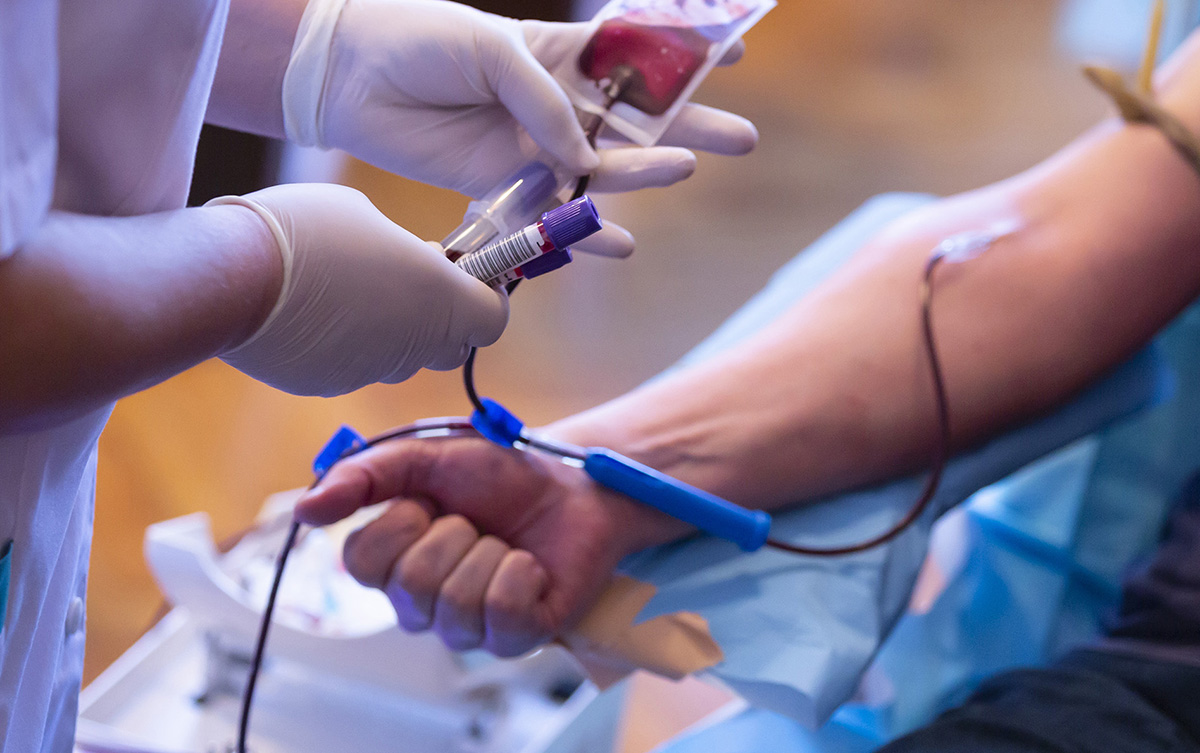
The Australian Red Cross Blood Service (Lifeblood) has announced it will lift its ban on sexually active LGBTQ people from donating blood.
The Star Observer, an Australian LGBTQ newspaper, on Wednesday reported “gay and bisexual men and transgender women” were previously not “able to donate plasma if they had been sexually active with men in the last three months.” The ban will end on July 14.
“Lifeblood has been working to make blood and plasma donation more inclusive and accessible to as many people as possible, whilst maintaining the safety of the blood supply,” said Lifeblood on Wednesday in a press release that announced the new policy.
“In the first of the rule changes, from Monday, July 14, 2025, Lifeblood will remove most sexual activity wait times for plasma donations,” it added. “Under this world-leading ‘plasma pathway,’ most people, including gay and bisexual men, and anyone who takes PrEP will be able to donate plasma without a wait period, providing they meet all other eligibility criteria. Extensive research and modeling show that there will be no impact to the safety of the plasma supply with this change.”
“Once implemented, all donors will be asked the same questions about their sexual activity, regardless of their gender or sexuality, and most people in a sexual relationship of six months or more with a single partner will be eligible to donate blood,” notes Lifeblood’s press release. “In addition, most people with new or multiple partners will also be able to donate blood if they have not had anal sex in the last three months. The change will bring an end to men being asked if they’ve had sex with another man.”
Lifeblood Chief Medical Officer Jo Pink said the new policy will allow 24,000 additional people to donate blood each year.
“We’re excited to be able to welcome more people from across the community into our donor centers from next month,” said Pink.
Let Us Give and other advocacy groups for years had urged Lifeblood to allow LGBTQ people to donate blood without restrictions.
“We thank the TGA (Therapeutic Goods Administration) and Lifeblood for removing a ban that limited the supply of safe whole blood and stigmatized gay men, and bisexual men and trans women who have sex with men, as a threat to public health,” said Let Us Give spokesperson Rodney Croome.
Kenya
Queer Kenyans, Ugandans celebrate Pride month
Pan-African Conference on Family Values took place in Nairobi in May

As queer people around the world celebrate Pride month, their Kenyan and Ugandan counterparts are also marking it with a strong message of defiance and resistance.
Their agitation for “dignity, safety, and liberation” in homophobic environments follows last month’s second Pan-African Conference on Family Values in Nairobi, whose delegates were concerned about the push to normalize so-called LGBTQ practices on the continent and resolved to resist.
The Initiative for Equality and Non Discrimination, a Kenyan LGBTQ rights organization, for instance cites Pride’s founding spirit of protest to resist the attempt to “erase, silence and oppress” queer people.
“In a world that tries to diminish our existence, choosing joy becomes a radical act. Queer joy is not just a celebration, it is resistance. It is healing. It is a bold declaration; we are here, we are whole, and we deserve to thrive,” INEND states.
It affirms that queer people have space for rage, resistance, softness, and joy as they honor the roots of Pride packed with a variety of activities for the group throughout the month.
“We demand inclusion, we bask for visibility and we dance through the fire. This, too, is revolution,” INEND says.
During the Pan-African Conference on Family Values meeting, which delegates from national governments, anti-LGBTQ lobby groups, academic and religious institutions, and international partners attended, Kenyan National Assembly Speaker Moses Wetang’ula affirmed the country’s position on marriage between a man and a woman as the constitution states. Wetang’ula advocates for laws that protect the “traditional family” and cultural values against what he described as Western imports.
“I urge our legislators that they should shield the good provisions of our constitution on family from ideological redefinitions of marriage seeking to recognize outlawed same-sex relationships,” Wetang’ula said.
He also asked lawmakers to enact laws to prohibit comprehensive sexuality education in schools and only permit a science-based curriculum that is appropriate to the age, development level, and cultural background of school children without normalizing same-sex sexual acts and relationships.
“In modern times, across all nations, there have emerged two forces: one fighting for, and the other pursuing ideologies, positions, and acts that are against the traditional family,” Wetang’ula said.
The delegates during the conference, which sparked criticism from Kenyan queer groups committed to resist the imposition of LGBTQ rights and other so-called external values under the pretense of development aid, international agreements, or donor partnerships that conflict with national laws and cultural integrity. They also committed to establishing, strengthening, and coordinating “pro-family” advocacy platforms and multi-sector coalitions at national, regional, and continental levels to engage with policymakers, legislators, and public education players.
This pledge was in response to the delegates’ concerns over external manipulation of national legislative processes through covert or overt efforts to influence or bypass national parliaments in adopting judicial decisions that redefine family, life, and gender. They were also concerned over the global push to normalize gender fluidity and “non-biological” sexual identities in law, education, and healthcare, contrary to established biological, African culture, and religious norms.
The delegates asked the African governments, parliaments, the African Union, and regional economic blocs to urgently undertake legislative reviews and reforms to ensure all national laws align with constitutional protections for the family, life, and parental rights. The Initiative for Equality and Non Discrimination, however, argue that describing queerness as un-African is a lie and a tool of imperialism used as a weapon to justify violence, exclusion and erasure, which should be rejected as it was enacted by colonial powers.
Kenya’s queer community has nevertheless lined up a month’s worth of Pride events in Nairobi, the country, and across the country. Some of the locations are not publicly disclosed because of security reasons.
The events calendar that Galck, a group of 16 LGBTQ rights organizations, released includes entertainment and socializing every Friday evening in various places for queer party lovers. The celebrations also include queer community networking events to empower each other, meet-ups in safe places for soft, acoustic jam sessions and reflection, queer community days where the group gather to connect and celebrate queer lives.
The calendar also invites queer people to participate in an open conversation with Galck, a trivia and karaoke event with the National Gay and Lesbian Human Rights Commission, a supportive healing circle termed ‘Healing out Loud’ for distressed queer people, and a queer community potluck for the group to enjoy food, fun and connection.
Other Pride events include queer love edition for singles, an art exhibition that includes rainbow- themed painting, a healing-centred therapy workshop termed “Chosen Family, Chosen Self,” a literary forum for bookworms to celebrate queer African literature, and movie night for film lovers.
The Cosmopolitan Affirming Community, a Nairobi-based church for queer people, has organized Gospel Sunday. Trek Tribe Kenya, an outdoor activity organizer, is also organizing activities that include climbing Mount Kenya, Africa’s second-highest mountain, hiking the gorges of Hell’s Gate National Park, and enjoying a “Pastel in the Park” wellness treat.
“Respect the spaces you attend as they are safe, affirming environments, and take care of oneself and each other during Pride fun fare celebration,” Galck urges.
‘Pride is not just parades or celebrations’
Their queer counterparts in Uganda are also having an eventful Pride month, despite persistent challenges.
“Pride is not just parades or celebrations. It is solidarity for many who cannot celebrate or march. It means refusing to be erased and choosing to simply be who you are,” said Sexual Minorities Uganda, which LGBTQ activist Frank Mugisha leads.

June 18 is Autistic Pride Day — a day for us, autistic people, to celebrate our existence despite a world that often tries to erase or change us. Most of us don’t see autism as a disorder to fight; it’s part of who we are — autism determines how we think, communicate, and see the world. That’s why rhetoric like RFK Jr.’s “War on Autism” feels so deeply offensive.
But today, in the face of growing attacks on both autistic and LGBTQI+ rights, it’s important to focus on something hopeful. There’s a strong overlap between the autistic and LGBTQI+ communities — and since Autistic Pride Day falls in the middle of Pride month, I want to celebrate that connection.
Here are eight incredible autistic LGBTQI+ people who have helped change how the world sees both communities, and who can inspire the next generation.
Jim Sinclair (activist)
Jim Sinclair is a founder of the modern neurodiversity movement; a movement based on the idea that the diversity of how the human brain works is a natural part of human variation, like skin color or sexual orientation. Jim Sinclair is a co-founder of the first autistic organization created by autistic people for autistic people: Autistic Network International. His essay “Don’t Mourn For Us” helped millions of parents worldwide to accept their autistic kids. Jim is also an asexual and intersex activist who was raised as a girl. Jim hadn’t spoken orally before the age of 12 but felt from early on that he was not a girl. He was almost institutionalized in a psychiatric facility for refusing to accept a female gender identity and role but was instead subjected to “conversion therapy.”
As an adult, Jim speaks for intersex rights in front of the Intersex Society of North America and refuses to accept the gender binary for himself.
Bella Ramsey (actress)
Bella is a world-famous British actress, best known for their roles as Lyanna Mormont in “Game of Thrones” and Ellie in “The Last of Us” TV series. They are also an openly nonbinary autistic person, and one of the most visible autistic queer people in the world.
Despite the hate Bella receives because of their political views and non-conventional appearance, they continue to openly support trans rights and refuse to accept the femininity assigned at birth.
Andrew Joseph White (writer)
Andrew is an American young adult author whose books “Hell Followed With Us,” “The Spirit Bares Its Teeth,” and “Compound Fracture” became bestsellers and received numerous awards. Born and raised in West Virginia, Andrew is openly bi, autistic, and trans. He writes stories about autistic trans kids — stories he needed when he was younger — often with speculative horror elements that deal with transphobia, ableism, family alienation, and religious bigotry.
Andrew’s first adult horror novel, “You Weren’t Meant To Be Human” about an autistic trans man, will be published in September 2025 and is inspired by trans people’s struggle for abortion rights.
Matt Cain (writer, broadcaster)
Matthew Cain is an openly gay British writer and broadcaster, mostly famous for his novels “The Madonna of Bolton,” “The Secret Life of Albert Entwistle,” “Becoming Ted,” and “One Love.” He was also Channel 4’s first culture editor and editor-in-chief of Attitude magazine and has judged the Costa Prize. In 2025, Matt was awarded a Member of the Order of the British Empire for his services to LGBTQI+ culture — a well-deserved recognition for someone who’s helped bring queer stories into the light.
In 2025, Matt announced that he had been diagnosed with autism, which was “eye-opening” for him and helped him to rethink his past. It also provided a new role model for autistic gay people around the globe.
Lý Xīnzhèn Zhāngsūn (activist, attorney)
Lý Xīnzhèn Zhāngsūn, formally and mostly known as Lydia X. Z. Brown, is a queer, nonbinary, East Asian American advocate, attorney, writer, educator, and community organizer whose work centers on disability justice — particularly for autistic and multiply marginalized people. Over the past 15 years, they’ve trained hundreds across academia, nonprofits, companies, and government on issues at the intersection of disability, race, gender, queerness, and migration. They are one of the most outspoken advocates for disabled people of color in the world, and their work has inspired autistic activists worldwide.
They co-founded the Autistic People of Color Fund and co-edited “All the Weight of Our Dreams: On Living Racialized Autism.” As an educator, they teach in the Disability Studies Program and the Women’s and Gender Studies Program at Georgetown University, as well as in the American Studies Program at American University’s Department of Critical Race, Gender, and Culture Studies.
Jarry (social media influencer)
Jarry is an autistic transgender activist and social media influencer from Russia, who created the first Russian-language YouTube channel about the specific presentation of autism among the majority of women, girls, and other individuals assigned female at birth — a topic still unknown not just to general public, but to many psychiatrists and experts in the post-Soviet region. Because of the Soviet colonial legacy, Russian remains a dominant language in Eastern Europe, so Jarry has influence beyond Russia.
Jarry also led online support groups for autistic folks — an important step in a region where there are no such groups in most of the cities. After Russia launched its full-scale war against Ukraine in 2022, Jarry became an outspoken supporter of Ukraine, and had to ask for political asylum in Europe.
Hannah Gadsby (comedian)
Hannah is an Australian comedian, actor, and writer who won the final of the Raw Comedy competition for new comedians in 2006. In 2018, their show “Nanette” on Netflix won the Primetime Emmy Award for Outstanding Writing for a Variety Special and a Peabody Award.
Hannah was assigned female at birth but identifies as genderqueer. Their wife is also their producer, and their queerness is an integral part of their professional life.
They found out they are autistic later in life, which helped them better understand their experiences. Hannah also made millions of people rethink the stereotype that autistic people don’t understand humor.
Akwaeke Emezi (writer)
Akwaeke Emezi is a Nigerian author, best known for their critically acclaimed novels “Freshwater,” “Pet,” and the New York Times bestselling “The Death of Vivek Oji.” In their novels, Akwaeke explores topics such as immigration and displacement, trauma (queerness, Blackness, and alienation. For example, while writing “Pet,” Akwaeke focused on creating the book they needed while growing up as a trans Black disabled person.
Born in Umuahia, Nigeria, like many Nigerian people, Akwaeke faced a lot of stigma in the West. They have struggled with mental health like many non-white, neurodivergent queer people living at the intersection of multiple identities.
They are a powerful role model for non-white autistic people seeking recognition and acceptance despite widespread stigma.
There are many more amazing autistic LGBTQI+ people around the world who are changing both communities every day. This list is extremely subjective and based on my own experience with autistic community in different countries and the way I saw the influence of specific people worldwide. Despite that in making this list, I tried to include as many different autistic people from various backgrounds as possible, unfortunately, many incredible autistic LGBTQI+ folks remain unseen due to regional and linguistic barriers that prevent their stories from reaching a wider audience.
-

 U.S. Supreme Court2 days ago
U.S. Supreme Court2 days agoSupreme Court upholds ban on transgender care for minors
-
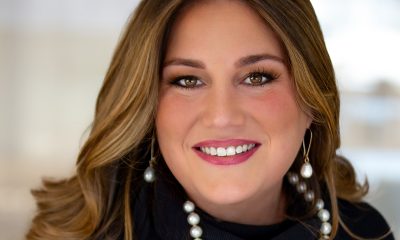
 U.S. Federal Courts4 days ago
U.S. Federal Courts4 days agoMeeting the moment: Democracy Forward takes prominent role in fighting Trump regime
-
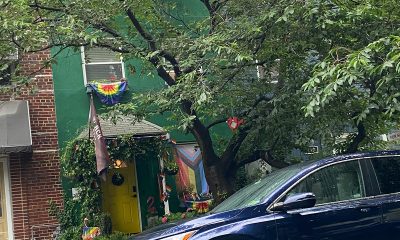
 District of Columbia3 days ago
District of Columbia3 days agoJuvenile arrested for anti-gay assault in D.C.
-

 National4 days ago
National4 days agoNew LGBTQ+ Archive to save scrubbed federal resources

